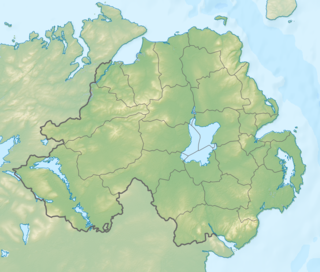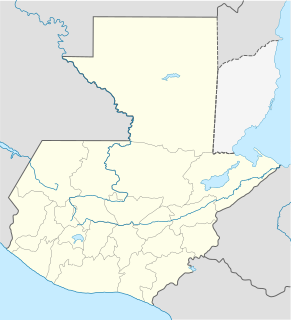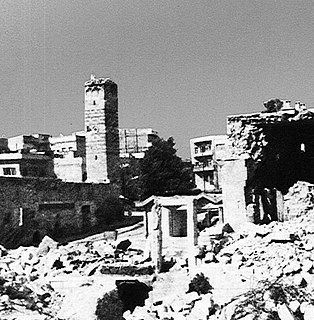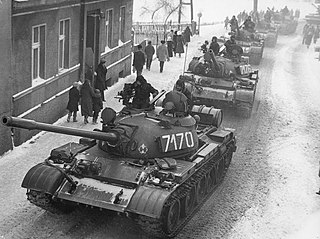 W
WOn Thursday 16 September 1982 the Irish Republican and Revolutionary Socialist paramilitary organization the Irish National Liberation Army (INLA) exploded a bomb hidden in a drainpipe along a balcony in Cullingtree Walk, Divis Tower, Belfast. The explosive device was detonated as a British Army patrol was attacked by a "stone-throwing mob" as they walked along a balcony at Cullingtree Walk. The blast killed three people, a British Army soldier named Kevin Waller (20), and two Catholic civilian passers-by, both of whom were children, they were Stephen Bennet (14) and Kevin Valliday (12). Four other people were injured in the explosion, including another British soldier and three civilians. An INLA member detonated the bomb using a remote control from ground level, where they couldn't see who was on the balcony. There was anger from the Irish Nationalist community directed towards the INLA over the deaths of the two young civilians. 1982 was the INLA's most active year of The Troubles and they killed more British security forces in 1982 than in any other year of the conflict. In December 1982 they carried out the Droppin Well bombing which killed 17 people including 11 off-duty British soldiers, making it the group's deadliest attack against the British Army. INLA Volunteer Martin McElkerney was sentenced to life for the Divis bombing in 1987, but he was released in 1999 under the Good Friday Agreement. In May 2019 McElkerney was found shot, with a handgun nearby, after making a number of concerning phone calls. He later died in hospital.
 W
WThe Invasion of the Falkland Islands, code-named Operation Rosario, was a military operation launched by Argentine forces on 2 April 1982, to capture the Falkland Islands, and served as a catalyst for the subsequent Falklands War. The Argentines mounted amphibious landings and the invasion ended with the surrender of Falkland Government House.
 W
WThis article describes the composition and actions of the Argentine air forces in the Falklands War, which comprised units of the Air Force, Army, Navy and other services.
 W
WThe Cambodian–Vietnamese War, known in Vietnam as the Counter-offensive on the Southwestern border, and by Cambodian nationalists as the Vietnamese invasion of Cambodia, was an armed conflict between Democratic Kampuchea, controlled by the Khmer Rouge, and the Socialist Republic of Vietnam. The war began with repeated attacks by the Kampuchean Revolutionary Army on the southwestern border of Vietnam, particularly the Ba Chuc massacre which resulted in the deaths of over 3,000 Vietnamese civilians. On 25 December 1978, Vietnam launched a full-scale invasion of Kampuchea, and subsequently occupied the country and removed the government of the Communist Party of Kampuchea from power.
 W
WThe Communist insurgency in Malaysia, also known as the Second Malayan Emergency, was an armed conflict which occurred in Malaysia from 1968 to 1989, between the Malayan Communist Party (MCP) and Malaysian federal security forces.
 W
WThe Communist insurgency in Sarawak occurred in Malaysia from 1962 to 1990, and involved the North Kalimantan Communist Party and the Malaysian Government. It was one of the two Communist insurgencies to challenge the former British colony of Malaysia during the Cold War. As with the earlier Malayan Emergency (1948–1960), the Sarawak Communist insurgents were predominantly ethnic Chinese, who opposed to British rule over Sarawak and later opposed the merger of the state into the newly created Federation of Malaysia. The insurgency was triggered by the 1962 Brunei Revolt, which had been instigated by the left-wing Brunei People's Party in opposition to the proposed formation of Malaysia.
 W
WThe Dos Erres massacre of 6 December 1982 took place in Dos Erres, a small village in the municipality of La Libertad, in the northern Petén department of Guatemala. The name of the village, occasionally given as "Las Dos Erres", literally means "two Rs", originating from two brothers called Ruano who received the original land grant.
 W
WThe Falklands War was a 10-week undeclared war between Argentina and the United Kingdom in 1982 over two British dependent territories in the South Atlantic: the Falkland Islands and its territorial dependency, South Georgia and the South Sandwich Islands. The result of the war was a British victory.
 W
WThe Battle of Goose Green was an engagement between British and Argentine forces on 28 and 29 May 1982 during the Falklands War. Located on East Falkland's central isthmus, the settlement of Goose Green was the site of an airfield. Argentine forces were in a well-defended position, within striking distance of San Carlos Water, where the British task force had made its amphibious landing.
 W
WThe Hama Massacre, or Hama Uprising, occurred in February 1982, when the Syrian Arab Army and the Defense Companies, under the orders of the country's president Hafez al-Assad, besieged the town of Hama for 27 days in order to quell an uprising by the Muslim Brotherhood against al-Assad's government. The massacre, carried out by the Syrian Army under commanding General Rifaat al-Assad, effectively ended the campaign begun in 1976 by Sunni Muslim groups, including the Muslim Brotherhood, against the government.
 W
WThe Islamist uprising in Syria comprised a series of revolts and armed insurgencies by Sunni Islamists, mainly members of the Muslim Brotherhood from 1976 until 1982. The uprising was aimed against the authority of the secular Ba'ath Party-controlled government of Syria, in what has been called a "long campaign of terror". During the violent events Islamists attacked both civilians and off-duty military personnel, and civilians were also killed in retaliatory strike by security forces. The uprising reached its climax in the 1982 Hama uprising.
 W
WThe 1982 Lebanon War, dubbed Operation Peace for Galilee by the Israeli government, later known in Israel as the Lebanon War or the First Lebanon War, and known in Lebanon as "the invasion", began on 6 June 1982, when the Israel Defense Forces (IDF) invaded southern Lebanon, after repeated attacks and counter-attacks between the Palestine Liberation Organization (PLO) operating in southern Lebanon and the IDF that had caused civilian casualties on both sides of the border. The military operation was launched after gunmen from Abu Nidal's organization attempted to assassinate Shlomo Argov, Israel's ambassador to the United Kingdom. Israeli Prime Minister Menachem Begin blamed Abu Nidal's enemy, the PLO, for the incident, and used the incident as a casus belli for the invasion.
 W
WMartial law in Poland refers to the period between 13 December 1981 and 22 July 1983, when the authoritarian communist government of the Polish People's Republic drastically restricted everyday life by introducing martial law and a military junta in an attempt to throttle political opposition, in particular the Solidarity Movement. Thousands of opposition activists were imprisoned without charge, and as many as 91 killed. Although martial law was lifted in 1983, many political prisoners were not released until a general amnesty in 1986.
 W
WThe Battle of Mount Harriet was an engagement of the Falklands War, which took place on the night of 11/12 June 1982 between British and Argentine forces. One of three battles in a Brigade-size operation all on the same night, the other two being the Battle of Mount Longdon and the Battle of Two Sisters.
 W
WThe Assault on Mount Kent was a series of engagements during the Falklands War, primarily between British and Argentine special forces.
 W
WThe Battle of Mount Longdon, on 11–12 June 1982 near the end of the Falklands War, was fought between the British Third Battalion, of the Parachute Regiment and elements of the Argentine 7th Infantry Regiment, one of three engagements in a Brigade-size operation that night, along with the Battle of Mount Harriet and the Battle of Two Sisters. A mixture of hand-to-hand fighting and ranged combat resulted in the British occupying this key position around the Argentine garrison at Port Stanley.
 W
WThe NDF Rebellion was an uprising in the Yemen Arab Republic by the National Democratic Front, under Yahya Shami, between 1978 and 1982.
 W
WOperation Mole Cricket 19 was a suppression of enemy air defenses (SEAD) campaign launched by the Israeli Air Force (IAF) against Syrian targets on June 9, 1982, at the outset of the 1982 Lebanon War. The operation was the first time in history that a Western-equipped air force successfully destroyed a Soviet-built surface-to-air missile (SAM) network. It also became one of the biggest air battles since World War II, and the biggest since the Korean War. The result was a decisive Israeli victory, leading to the colloquial name the "Bekaa Valley Turkey Shoot".
 W
WOperation Paraquet was the code name for the British military operation to recapture the island of South Georgia from Argentine military control in April 1982 at the start of the Falklands War.
 W
WThe Plan de Sánchez massacre took place in the Guatemalan village of Plan de Sánchez, Baja Verapaz department, on 18 July 1982. Over 250 people were abused and murdered by members of the armed forces and their paramilitary allies.
 W
WThe Raid on Pebble Island was a raid by British Special Forces on Pebble Island's airfield during the Falklands War, and took place on the night of 14–15 May 1982. Pebble Island is one of the smaller Falkland Islands, lying north of West Falkland. The site was being used as a forward operating base for T-34 Mentor and Pucara aircraft by the Argentine Air Force; British Special Air Service (SAS) operatives were tasked with destroying the aircraft on the ground, in an operation that echoed back to some of the unit's first missions during the North African Campaign of World War II. SAS elements, then embarked on HMS Hermes, were tasked with eliminating the airfield, with naval support from the Type 22 frigate HMS Broadsword as Hermes defensive escort and the County class destroyer HMS Glamorgan to provide naval gunfire support with its Mark 6 4.5 inch guns.
 W
WThe Río Negro massacres were a series of killings of villagers by the government of Guatemala between 1980 and 1982.
 W
WThe Sabra and Shatila massacre was the killing of between 460 and 3,500 civilians, mostly Palestinians and Lebanese Shiites, by a militia close to the Kataeb Party, a predominantly Christian Lebanese right-wing party, in the Sabra neighborhood and the adjacent Shatila refugee camp in Beirut, Lebanon. From approximately 18:00 on 16 September to 08:00 on 18 September 1982, a widespread massacre was carried out by the militia in plain sight of the Israeli Defence Forces (IDF), its ally. The Phalanges were ordered by the IDF to clear Palestine Liberation Organization (PLO) fighters out of Sabra and Shatila, as part of the IDF maneuvering into West Beirut. The IDF received reports of some of the Phalange atrocities in Sabra and Shatila but did not take any action to prevent or stop the massacre.
 W
WThe invasion of South Georgia, also known as the Battle of Grytviken or Operation Georgias, took place on 3 April 1982, when Argentine Navy forces seized control of the east coast of South Georgia after overpowering a small group of Royal Marines at Grytviken.
 W
WOperation Super was a military confrontation during the South African Border War in March 1982 to prevent SWAPO guerrillas infiltrating into South West Africa through the Kaokoveld from a location near the abandoned Portuguese town of Iona in the Angolan province of Namibe.
 W
WThe Skirmish at Top Malo House took place on 31 May 1982 during the Falklands War, between 1st Assault Section Argentine Special Forces from 602 Commando Company and a patrol formed from staff and trainees of the British Mountain and Arctic Warfare Cadre, a training detachment of the Royal Marines who were under the Control of 3 Commando Brigade for Operation Corporate.